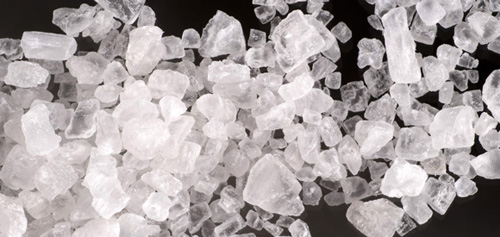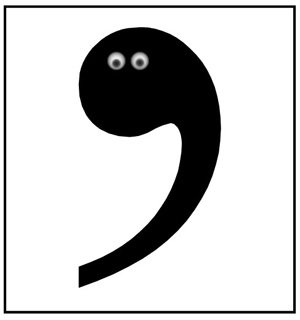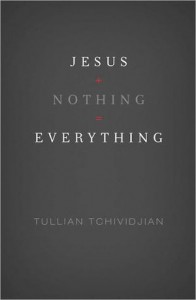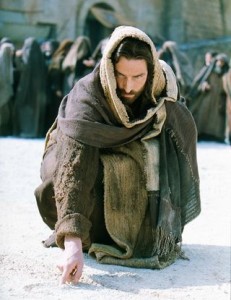 Strength.
Strength.
Power.
Might.
Words that have impact, weight, gravitas. Vivid pictures of great force and ability prominently display on the screen of our minds. Big, overwhelming, unstoppable, unbreakable.
Powerful.
We love strength. We need it. The events of our lives remind us so often that we lack control, ability… power and strength.
And so we create heros who are strong. We even create villains in our various narratives who are equally strong—or stronger—and the irresistible draw of the story is that the hero, through whatever strength, power, ability he or she might muster, is able to overcome the impossible odds and defeat… overpower the enemy.
Because that is strength.
Right?
Well…
This week, my thoughts have remained on the idea of weakness versus strength. How can it be that our weakness, our brokenness, can be our strength? Inevitably I am drawn back to the foundational Truth that God himself is our only source of strength. The only source of Strength.
The trick is, he doesn’t always display his strength in the way we first think of strength.
I wrote about Strength In Weakness earlier this week. I shared recent reminders of how our weaknesses are not our downfall, but with God, they are a greater strength. We need him, and our weaknesses focus us—again, and again—on that essential reality.
And again my thoughts betray my true, fundamentally flawed thinking. Weakness is my inability, and strength is my ability. Strength to change things. Power to move, alter, overcome.
Perhaps this is not true strength at all?
Jesus told his friends that, “in this world, kings and great men ‘lord it over’ their people… But… you… will be different… the leader should be like the servant.”
And in the previous post, we remembered how Jesus even restrained his power all the way to an unjust execution. Arguably demonstrating more strength than an overpowering, awe-inspiring display of “power”.
I once heard the term “meekness” defined as strength under control. Is this evidence of greater power; greater strength? Yielding of available power. Sheathing the sword.
Too often we want Power to overcome, destroy the Foe. But more often, Power is demonstrated by restraint. By submission. By being the Servant.
Philippians 2
Don’t be selfish; don’t try to impress others. Be humble, thinking of others as better than yourselves. Don’t look out only for your own interests, but take an interest in others, too.
You must have the same attitude that Christ Jesus had.
Though he was God, he did not think of equality with God as something to cling to.
Instead, he gave up his divine privileges;
he took the humble position of a slave
and was born as a human being.
When he appeared in human form,
he humbled himself in obedience to God
and died a criminal’s death on a cross.
Therefore, God elevated him to the place of highest honor
and gave him the name above all other names,
that at the name of Jesus every knee should bow,
in heaven and on earth and under the earth,
and every tongue confess that Jesus Christ is Lord,
to the glory of God the Father.
God speaks in a whisper. He was born a baby, in a barn, in a tiny Nowhere Town. He died the death of a criminal, without resistance.
His Power and Strength are far beyond what we can fathom, far different than we can comprehend.
Holding back your tongue is power. Holding your temper. Pulling punches. Turning the other cheek. Laying down your own rights, willingly, for another’s benefit. Without being asked to. These are some examples Jesus modeled; he who has true power.
When you next ask for a demonstration of his Power… it might turn out differently than you expect.
There is no doubt that all Power and Strength and Glory and Honor belong to him, and him alone. What that looks like, he continues to slowly reveal to me. You may have a clearer picture of it than I do, and I’d love to hear your thoughts in a comment below, or contact me directly.
But I know this—he is Power, and Strength. And my greatest ideas of Power pale in comparison to all that He is.
And the best part is, one of my favorite sections of scripture—a prayer for power and strength—talks about God’s immense power… to change me from the inside! How much more subtle can you get, but Paul says it’s beyond our imagination!
I leave you with Paul’s words. Be encouraged, in His Power.
When I think of all this, I fall to my knees and pray to the Father, the Creator of everything in heaven and on earth. I pray that from his glorious, unlimited resources he will empower you with inner strength through his Spirit. Then Christ will make his home in your hearts as you trust in him. Your roots will grow down into God’s love and keep you strong. And may you have the power to understand, as all God’s people should, how wide, how long, how high, and how deep his love is. 19 May you experience the love of Christ, though it is too great to understand fully. Then you will be made complete with all the fullness of life and power that comes from God.
Now all glory to God, who is able, through his mighty power at work within us, to accomplish infinitely more than we might ask or think. Glory to him in the church and in Christ Jesus through all generations forever and ever! Amen.




 I am not very comfortable in “Christian” settings. For a long time now, I’ve said that I “don’t like Christians”, but that’s meant to be at least somewhat tongue-in-cheek. I know that Jesus is life, that there is no life outside of him; and for me, everything I do, and see, and experience runs through that filter.
I am not very comfortable in “Christian” settings. For a long time now, I’ve said that I “don’t like Christians”, but that’s meant to be at least somewhat tongue-in-cheek. I know that Jesus is life, that there is no life outside of him; and for me, everything I do, and see, and experience runs through that filter. The English language can certainly be confusing. Add grammar and punctuation to that, and there are all sorts of possible dangers ahead.
The English language can certainly be confusing. Add grammar and punctuation to that, and there are all sorts of possible dangers ahead.
 In many places within the pages of the Bible we read that Jesus was without sin. He who had no sin became sin for us… He is the spotless lamb… He faced all the same temptations we do, but he did not sin.
In many places within the pages of the Bible we read that Jesus was without sin. He who had no sin became sin for us… He is the spotless lamb… He faced all the same temptations we do, but he did not sin.
 I’ve seen this in action as a school bus driver, believe it or not. I’m sure you have a picture in your mind of what it’s like on a big bus full of young children. And… you’re right. It’s pretty loud, energetic, fun, and crazy! But the drivers who have the best ability to control their busses, when needed, are those who look kids in the eyes when they first get on the bus and offer a genuine, friendly greeting. When things get out of hand, they address the unruly ones by name, firmly but respectfully, and most often, the measure of respect that is given is the same measure returned.
I’ve seen this in action as a school bus driver, believe it or not. I’m sure you have a picture in your mind of what it’s like on a big bus full of young children. And… you’re right. It’s pretty loud, energetic, fun, and crazy! But the drivers who have the best ability to control their busses, when needed, are those who look kids in the eyes when they first get on the bus and offer a genuine, friendly greeting. When things get out of hand, they address the unruly ones by name, firmly but respectfully, and most often, the measure of respect that is given is the same measure returned.